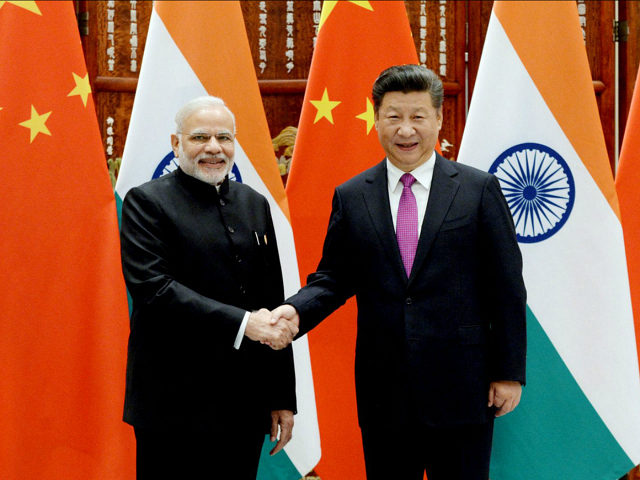China played down India’s reported plans to boycott the upcoming second Belt and Road Forum (BRF) in Beijing, suggesting this week that New Delhi may have misunderstood Beijing’s ambitious Belt and Road Initiative (BRI).
In 2017, India boycotted the first BRF over its objections to the China-Pakistan Economic Corridor (CPEC) component of the multi-trillion dollar initiative running through Pakistan-administered Kashmir, a Muslim-majority region claimed by New Delhi.
Lu Kang, a spokesman for China’s foreign ministry, claimed that the BRI “is an open and inclusive economic cooperation initiative. It does not involve territorial and maritime disputes,” the New Indian Express reports.
Asked to comment on New Delhi’s reported plans to skip the second BRF, Kang declared, “Whether the Indian side will participate in the BRI forum, I think you need to ask India for a more specific answer.”
“We follow market-based principles and the customary international rules,” the spokesman reportedly claimed, adding, ”I think maybe some sides have misunderstandings on the BRI and thus have some wrong judgment. Please know that China follows [the] principle of cooperation and consultation for [the] shared benefit and those principles will not change.”
China urged India to “wait and see” before it decides to skip the looming BRF forum.
Kang proclaimed:
The BRI has been an open and inclusive initiative for all countries and organizations interested in this. But of course, if the relevant side would like to wait and see, we do not oppose that, and as for the participation of international organizations in the BRF some countries losing out on opportunities, you may need to ask the countries that do not participate in the BRF.
According to the Chinese spokesman, 29 international organizations and 125 countries – among them more than a dozen European nations, including Greece, Italy, and Luxembourg – have signed on to the BRI.
Indian Prime Minister Narendra Modi’s administration has signaled that it plans to boycott the upcoming forum.
Vikram Misri, the Indian ambassador to China, told the state-run Global Times last month:
To be honest, we have made no secret of our views and our position on BRI is clear and consistent and one that we have conveyed to the authorities concerned.
Above all, connectivity initiatives must be pursued in a manner that respects sovereignty, equality and territorial integrity of nations. No country can participate in an initiative that ignores its core concerns on sovereignty and territorial integrity.
Communist Party leader Xi Jinping’s administration claims that officials from over 100 countries, including 40 foreign leaders, will participate in BRF, which is aimed at promoting Beijing’s BRI initiative, also known as the One Belt, One Road (OBOR) project, the state-run China Daily notes.
Beijing is expected to host the forum in Beijing from April 25 to 27.
BRI is expected to be a massive network of land and sea links connecting China to scores of countries in Asia, Europe, the Middle East, Africa, and even the Western Hemisphere.
To the dismay of India, the project is expected to run through Pakistan-held Kashmir.
The Muslim-majority Himalayan region is home to competing territorial claims by China, its ally Pakistan, and their rival India. Although an unofficial border separates lands controlled by Pakistan and India, both countries claim Kashmir in its entirety.
Pakistan has already ceded some of its Kashmir territories to China, but New Delhi disputes Beijing’s claims to land on its side of the border.
Angered that CPEC is expected to run through Pakistan-held Kashmir, India has refused to join BRI despite efforts from China to persuade New Delhi it is in its best interest to do so.
The United States has also denounced BRI, arguing that it poses a national security threat. U.S. officials have cautioned that China may use the initiative to hide its military efforts across the world and to mire borrowing countries in debt that erodes sovereignty.

COMMENTS
Please let us know if you're having issues with commenting.